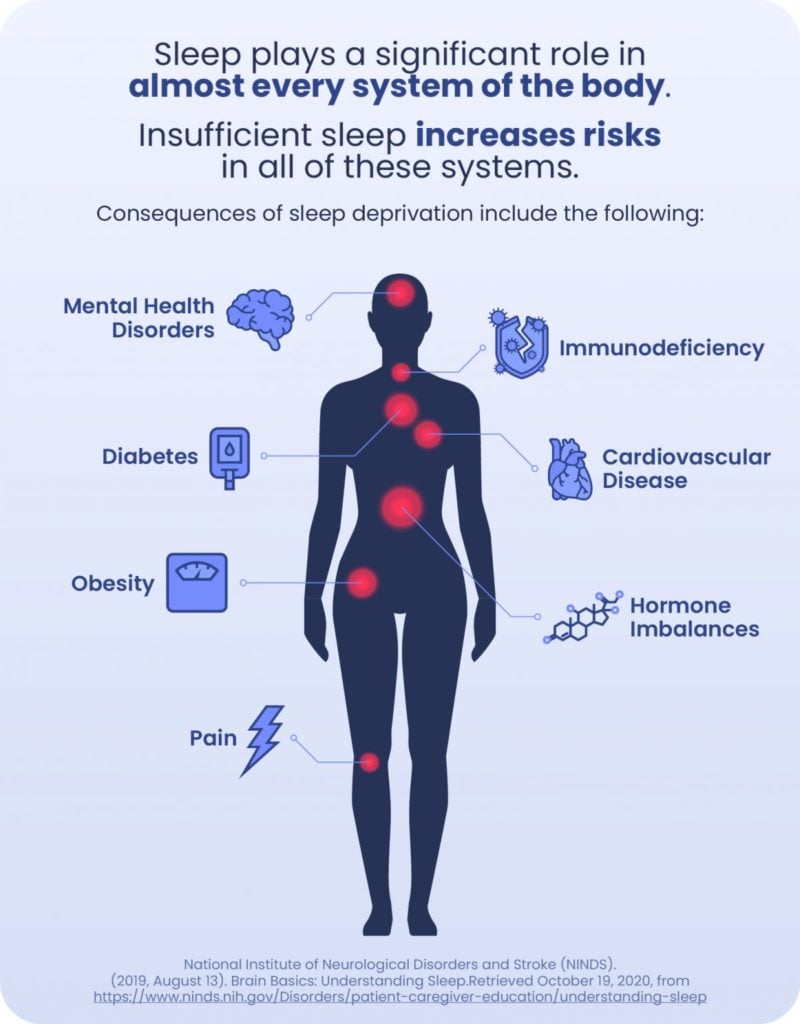Sleep is essential for our physical health and mental well-being. It allows our bodies to repair themselves, rejuvenate, and supports brain functioning. However, when we don’t get enough sleep, it can adversely impact our health, contributing to the development or worsening of various diseases. Here’s how poor sleep can impact different diseases.
1. Cardiovascular Diseases
Poor sleep can lead to higher blood pressure and increased levels of stress hormones, increasing the risk of conditions like heart disease and stroke. Moreover, sleep disorders like sleep apnea disrupt healthy sleep patterns, leading to more strain on the heart.
2. Diabetes
Insufficient sleep affects the body’s insulin sensitivity, leading to higher blood sugar levels and increasing the risk of type 2 diabetes.
3. Mental Health Disorders
Poor sleep has been linked to various mental health disorders, including depression, anxiety, and bipolar disorder. Lack of sleep can exacerbate these conditions, making it more difficult to manage symptoms.
4. Obesity
Sleep deprivation disrupts the balance of hormones that control appetite, leading to increased hunger and a higher likelihood of overeating, which can contribute to obesity.
5. Alzheimer’s Disease
During sleep, our brains clear out harmful waste products that accumulate during the day. Chronic sleep deprivation can interfere with this process, leading to a higher risk of developing Alzheimer’s disease.
6. Immune System Disorders
Insufficient sleep can weaken the immune system, making us more susceptible to infections and prolonging recovery time from illnesses.
7. Respiratory Diseases
Poor sleep can worsen existing respiratory diseases such as chronic obstructive pulmonary disease (COPD) and asthma. Moreover, sleep-related disorders like sleep apnea can increase the risk of developing these conditions.
8. Cancer
Research suggests that chronic sleep disruption may be linked to an increased risk of certain types of cancer, including breast and colon cancer.
9. Gastrointestinal Disorders
Sleep deprivation can exacerbate symptoms of gastrointestinal disorders such as irritable bowel syndrome (IBS) and gastroesophageal reflux disease (GERD).
10. Chronic Pain
Lack of sleep can increase sensitivity to pain, exacerbating conditions like fibromyalgia, arthritis, and other chronic pain conditions.
The link between sleep and disease emphasizes the importance of good sleep hygiene. Regular sleep schedule, good bedtime habits, and a healthy lifestyle can significantly improve sleep quality, thereby reducing the risk or impact of these diseases.


